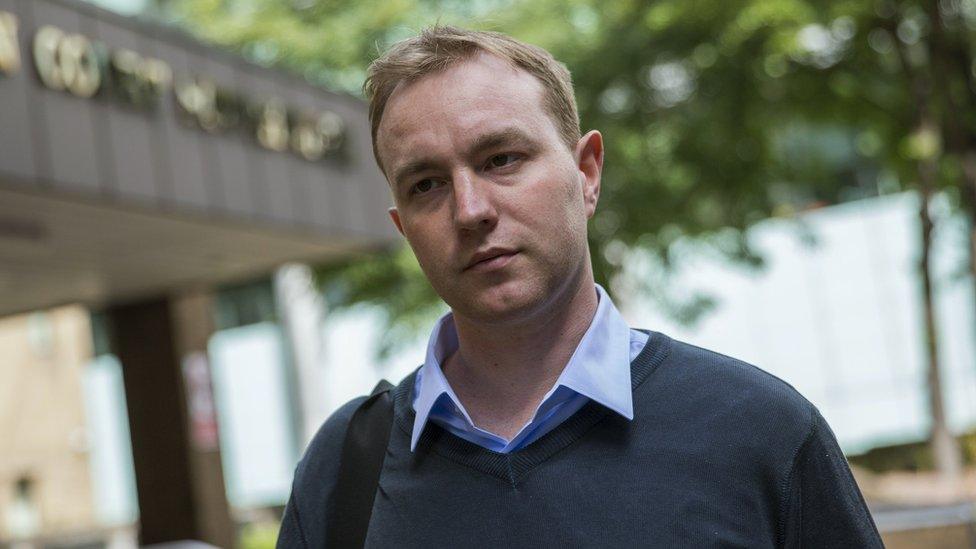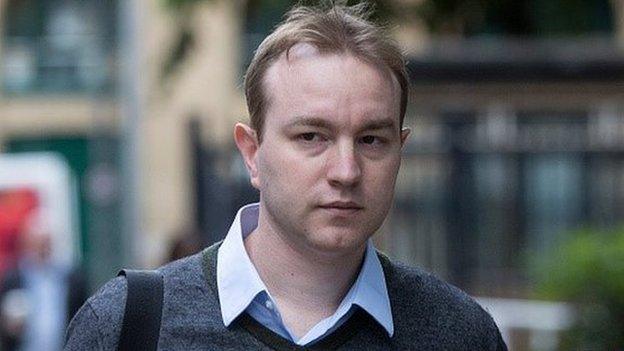Ex-Barclays banker in Libor case says he was obeying his boss
- Published

A former Barclays banker accused of manipulating the Libor interest rate only did what he was told to do by his boss without knowing it was wrong, his defence counsel has told a court.
Jonathan Mathew is one of five former Barclays employees charged with conspiracy to defraud by rigging US dollar Libor rates between 1 June 2005 and 31 August 2007.
Libor is linked to financial contracts around the world.
The five men deny the charge.
Libor - the London interbank offered rate - is a benchmark interest rate used by banks around the world to set the price of financial products worth trillions of pounds.
Mr Mathew, 35, is accused along with Stylianos Contogoulas, 44, Jay Vijay Merchant, 45, Alex Pabon, 37, and Ryan Reich, 34, of manipulating the rate.
The prosecution told the court that "they were driven by money... to make more profit on their trading".
Important man
Mr Mathew was 24 and living at home with his parents when he worked on the cash desk at Barclays in London.
He was responsible for submitting the bank's US dollar Libor rates when his boss was away.
His defence counsel, William Clegg QC, said Mr Mathew admitted accepting requests from traders to adjust the rate, but that he didn't financially benefit - he was only doing what his boss, Peter Johnson, told him to do.
Mr Johnson is not on trial.
They also heard that for all the importance of Libor to international financial markets, there was a lack of supervision, education and training at Barclays.
The defence counsel for another defendant, Mr Pabon, said he openly admitted making requests to rate submitters in London to suit his trading positions but had no idea it was wrong.
He, too, was instructed to do it.
The court heard evidence that senior bankers from across the industry knew that Libor was being influenced for commercial reasons but nothing was done.
Adrian Darbishire QC, representing Mr Reich, said when circumstances changed, "you could hear the unpleasant crunching sound of a few expendable traders thrown under a bus".
The trial, being held at Southwark Crown Court, began on Tuesday, and is expected to last 12 weeks.
- Published5 April 2016

- Published23 March 2016

- Published8 July 2015
